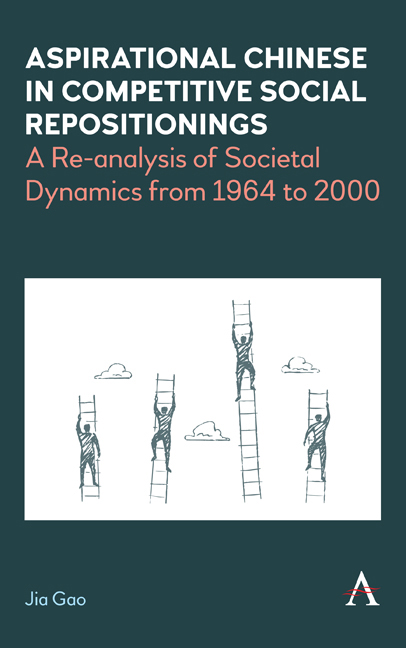 Aspirational Chinese in Competitive Social Repositionings
Aspirational Chinese in Competitive Social Repositionings Book contents
- Frontmatter
- Contents
- List of Abbreviations
- List of Figures
- List of Tables
- Preface and Acknowledgements
- One The Absence of Everyday Chinese in the Dichotomous Paradigm
- Two Rebranding the Communist Heir Narrative and the Cultural Revolution
- Three Tearing the Utopian Veil Down By the Sent-Down Youth
- Four Crying Out for Changes in the Second Half of the 1970s
- Five Battling for the Advantages Under the Dengist Political Alliances
- Six Climbing Different Social Ladders From the Mid-1980s
- Seven Filling in the Post-1989 Vacuum Left By Educated Liberals
- Eight Seizing Chances to Be Entrepreneurial in Post-1992 China
- Nine Towards a Theory of Competitive Social Repositioning
- References
- Index
Four - Crying Out for Changes in the Second Half of the 1970s
Published online by Cambridge University Press: 28 February 2024
- Frontmatter
- Contents
- List of Abbreviations
- List of Figures
- List of Tables
- Preface and Acknowledgements
- One The Absence of Everyday Chinese in the Dichotomous Paradigm
- Two Rebranding the Communist Heir Narrative and the Cultural Revolution
- Three Tearing the Utopian Veil Down By the Sent-Down Youth
- Four Crying Out for Changes in the Second Half of the 1970s
- Five Battling for the Advantages Under the Dengist Political Alliances
- Six Climbing Different Social Ladders From the Mid-1980s
- Seven Filling in the Post-1989 Vacuum Left By Educated Liberals
- Eight Seizing Chances to Be Entrepreneurial in Post-1992 China
- Nine Towards a Theory of Competitive Social Repositioning
- References
- Index
Summary
Since the time when Mao was alive and leading the Cultural Revolution, a widely used narrative suggests that Mao was fighting for his political legacy in Chinese history. This was based on his own logic and the example of the then Soviet Union's leader, Nikita Khrushchev. After taking over leadership of the Soviet Union, Khrushchev had strongly condemned Stalin's wrongdoings. Stalin's embalmed remains were even removed and buried elsewhere. This story was awful in the eyes of the Chinese culture of Mao's generation. Mao made strategic use of this case and cautioned his followers of the real danger of China's Khrushchev: Liu Shaoqi, Mao's first successor, who openly criticised Mao for the famine at the 1962 Seven-Thousand Cadres Conference. Obviously, Mao's efforts in his last 10 or so years were not only to place himself in history in the fashion he would have wanted, but also to fight against any form of revisionism or attempt to modify his anticipated position in history. This was a form of competitive repositioning – even if at a different level – aiming at positioning his revolutionary legacy in the world.
Mao had clearly overplayed his repositioning efforts, running against what he would wish to be remembered for. Having put a break to the faction fights between student rebel groups in July 1968, the CCP's Ninth National Congress was finally held in April 1969, almost thirteen years after its Eighth National Congress held in 1956. At the Ninth National Congress, Lin Biao was formally designated as Mao's successor. Mao could in fact stop at this point and avoid more damage to his historical position, but he was offended by Lin's proposal to reinstate the position of the PRC's president at the Lushan Conference held in early autumn 1970.
Lin Biao must have felt deceived by Mao after the 1970 Lushan Conference, so he started to show part of his military man's nature. He had since kept a long distance from Mao for a year, before opting to run away from China on 13 September 1971. His plane crashed in Mongolia on the way to the Soviet Union. The ‘September 13 Incident’ – or the 9/13 Incident as it is called in Chinese – was therefore a conclusion of Lin Biao's historical repositioning. His not-so-glorious relationship with Mao in much of the 1960s ended with his fleeing China and subsequent death. His death earned him a position in Chinese history.
- Type
- Chapter
- Information
- Aspirational Chinese in Competitive Social RepositioningsA Re-Analysis of Societal Dynamics from 1964 to 2000, pp. 71 - 92Publisher: Anthem PressPrint publication year: 2023


